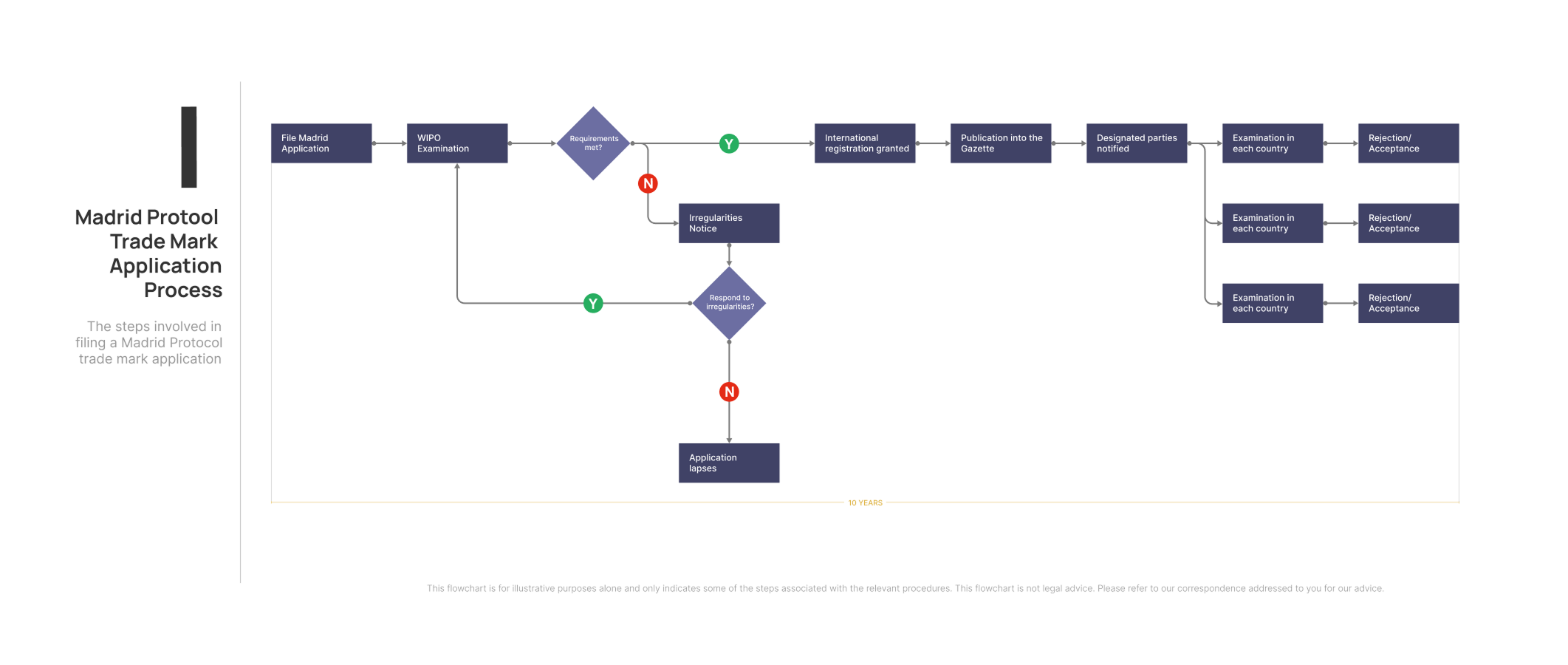Filing a Madrid Protocol Trade Mark Application

Whilst there is currently no option to file a single as a worldwide trade mark, the World Intellectual Property Organization (WIPO) provides the Madrid Protocol enabling applicants to pursue protection in multiple countries initiated via a single filing, making this pathway to international rights more cost effectively.
The Madrid System is a system for registering trade marks in member states of the Madrid Union. It allows applicants to apply for trade mark applications and maintain registrations in up to 115 member countries through one centralized system.
Benefits of international trade mark registration
One of the greatest benefits of acquiring an international trade mark registration for your mark is that you, as the owner of an Australian trade mark, can seek international trade mark protection by submitting a single application in the English language. This approach is more cost and time effective than filing multiple applications in each individual jurisdiction in which you are seeking trade mark ownership. Moreover, amendments and renewals of international registrations can be implemented more cost effectively.
Another advantage of an international trade mark registration is that once it is registered in the designated country, your trade mark is accorded the same protection as any trade mark that is nationally registered in that country.
The Madrid Protocol offers a provision for designating in other countries after the initial submission and at a later date through subsequent designations.
Considerations before filing an international trade mark registration
Given the independent national trade mark systems of the members of the Madrid protocol, you can still apply for trade mark protection directly to these countries. Your trade mark attorney can help you decide whether to file in the countries you are interested in via the Madrid Protocol or directly.
Considerations for this decision include:
- Are the countries you intend to apply in members of the Madrid Protocol?
- Are you eligible to file an international application under the Madrid Protocol?
- What is the scope of your Australian trade mark, such as the goods and/or services you wish to be protected overseas?
Your trade mark attorney can assist in acquiring a trade mark pre-filing search reports to check similar marks that have been used in your countries of interest. These searches can help identify which of the countries may present a potential prior use or prior filing conflict. In addition, we can help you determine whether your trade mark is likely or not to be registrable in the countries of interest due to possible cultural or legal restrictions.
Madrid registration process
Filing an international trade mark application
Before you can file an international trade mark application through the Madrid Protocol, you need to have a basic trade mark application filed if you don't already have a trade mark registration in your home country. This means, you need to start with an Australian trade mark application.
An application for International Registration is filed by your trade mark attorney through IP Australia. Once an application is filed, IP Australia certifies the International application and forwards it to WIPO. WIPO conducts a formal examination, registers the mark in the International Register and publishes it in the WIPO Gazette of International registrations. WIPO will then issue a certificate of international registration and notify the designated contracting parties.

Dependance on basic application
An international registration remains dependent on the basic application for a period of five years from the date of international registration. For Australian applicants the basic application is normally an Australian trade mark application. If the basic application or registration ceases to have effect, the international registration lapses. After the five-year period elapses, the maintenance of the international registration is no longer dependent on the basic application staying alive.
Lifetime of an international registration
An international registration has an initial validity period of ten years. When the ten year period ends, the registration can be renewed for all or some of the designations for further ten year periods by payment of renewal fees.